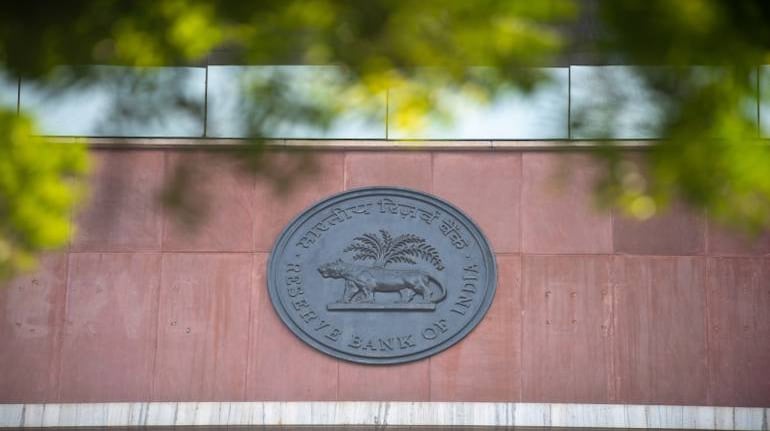



The Reserve Bank of India may start pulling out surplus liquidity and eventually move towards normalisation of interest rates, putting an end to the days of easy money, as the economy revives and Covid-19 concerns ease, economists said.
Core liquidity surplus is at a record high of Rs 12 lakh crore and the RBI is likely to calibrate the overall surplus, with the outlook for growth having improved over the past three to four months, said Vivek Kumar, an economist at QuantEco Research.
Central banks across the world flushed the markets with ample liquidity by lowering interest rates and infusing significant amounts of cash into banking systems as the pandemic disrupted the global economy. The RBI’s Monetary Policy Committee is meeting October 6-8.
Rate hike unlikely
Economists and experts said the RBI will likely not increase interest rates and will continue to keep an accommodative stance, although the central bank will try to moderate surplus liquidity.
“We expect record-low policy rates as well as the accommodative stance to remain unchanged in October,” Kumar said.
The repo rate, at which the RBI lends short-term funds to banks, is currently 4 percent, while the reverse repo rate, at which it borrows money from banks is 3.35 percent.
“We don’t expect any rate change and the stance would remain the same, too,” said Kunal Kundu, India Economist at Societe Generale Corporate and Investment Bank. “RBI will see if the third wave materialises and wait till December to make a decision on normalisation.”
The RBI will continue with subtle hints of tightening by taking out certain liquidity from the system without making the market nervous, followed by eventual normalisation, Kundu added.
Yes Bank’s chief economist Indranil Pant said in a report the MPC will retain rates, including the reverse repo rate.
“We also do not see any change in stance while the attempt to moderate liquidity will continue – increase in the duration of the VRRR could be toyed with,” Pant said, referring to variable rate reverse repo (VRRR) auctions by the RBI to reduce money supply.
G-SAP operations
According to experts, the RBI may use the Government Securities Acquisition Programme (G-SAP) to address the liquidity surplus situation. Under G-SAP, the central bank commits to buy a specified amount of bonds to enable a stable and orderly evolution of the yield curve amid comfortable liquidity conditions and ensure congenial financial conditions for the recovery to gain traction.
The amount of the G-SAP for the third quarter could be reduced with the provision that it could be revised up when required, said Abheek Barua, chief economist at HDFC Bank. Moreover, the RBI could continue to sterilise its G-SAP purchases, going forward, to keep the impact of its yield management tools liquidity neutral, Barua added.
The RBI said on July 5 it would conduct open market purchases of government securities of Rs 1.2 lakh crore under G-SAP in the second quarter of FY22, compared with Rs 1 lakh crore in the first quarter.
To address the core liquidity surplus, Kumar of QuantEco said, “This would involve a two-pronged strategy. In the first part, the RBI would desist from any incremental addition to systemic liquidity.”
This would come about by diverting a major part of reserve accumulation via forwards rather than spot and sterilising G-SAP operations, Kumar said.
According to a Yes Bank note, “Some market players fear a withdrawal of the G-SAP programme. While there is a chance for a reduction in the size of the programme (given that dated securities borrowing in H2FY22 are lower than in H1FY22), a sudden pause may not be warranted.”
MSS option
An option for the RBI to tackle surplus liquidity is the market stabilisation scheme, where it can withdraw excess money supply by selling government bonds. However, the RBI alone cannot do this and it needs to sign a memorandum of understanding with the government on the total limit of the bonds to be issued and their duration.
The RBI could consider impounding liquidity via semi-durable means by deploying longer-dated VRRR auctions and issuing MSS securities in consultation with the government, said Kumar, referring to the second part of the two-pronged strategy he espoused.
Communication is key
Economists expect policy normalisation may begin from December and a repo rate increase could be possible in the first or second quarter of the next financial year.
According to Kumar, the RBI may start moving towards interest rate normalisation in December. The process would be gradual, with the first phase marked by the restoration of the policy rate corridor’s width to 25 bps, Kumar added.
More than the impact of the monetary policy, the key here is how the RBI communicates changes, Kundu added.
Yes Bank’s chief economist said in the note, “Communication will be the key in this policy to understand the RBI’s mind on future policy direction, mainly with respect to the policy corridor.”
Discover the latest Business News, Sensex, and Nifty updates. Obtain Personal Finance insights, tax queries, and expert opinions on Moneycontrol or download the Moneycontrol App to stay updated!
Find the best of Al News in one place, specially curated for you every weekend.
Stay on top of the latest tech trends and biggest startup news.